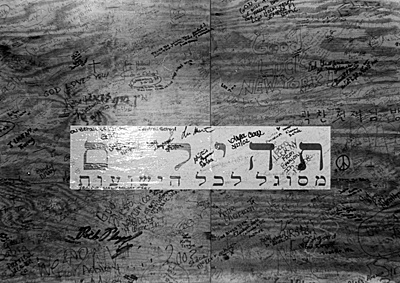All Nonfiction
- Bullying
- Books
- Academic
- Author Interviews
- Celebrity interviews
- College Articles
- College Essays
- Educator of the Year
- Heroes
- Interviews
- Memoir
- Personal Experience
- Sports
- Travel & Culture
All Opinions
- Bullying
- Current Events / Politics
- Discrimination
- Drugs / Alcohol / Smoking
- Entertainment / Celebrities
- Environment
- Love / Relationships
- Movies / Music / TV
- Pop Culture / Trends
- School / College
- Social Issues / Civics
- Spirituality / Religion
- Sports / Hobbies
All Hot Topics
- Bullying
- Community Service
- Environment
- Health
- Letters to the Editor
- Pride & Prejudice
- What Matters
- Back
Summer Guide
- Program Links
- Program Reviews
- Back
College Guide
- College Links
- College Reviews
- College Essays
- College Articles
- Back
Cultural Caretaker MAG
From the very first time I set foot in a temple, I knew this was a concept I would not fully understand. What was this higher power swirling around my head, made larger through the use of hundreds of voices and the crescendoing musical might of the organ? As a young girl, surrounded by this essence, I was confused and naturally indignant. My rabbi talked of “our people” who had made it through the desert for 40 years to the promised land; “our people” who had survived Pharaoh's wrath and crossed the Red Sea. Who were these people? Why did I care? Then all I cared about was getting home to watch “Spongebob.” However, now, looking back, it did matter. Every note, every whispered word spoken in temple made me who I am – and more importantly, made my ancestors who they were. There is a connection to my past that is made stronger through our common tongue, this special language that only we keep.
This is the story of my heritage,
my culture and my greatest belief: Judaism.
For a very long time, I was skeptical. Yes, I knew I was Jewish, but who cared? And as for a god? He didn't help us when six million of us were slaughtered across Europe in the Second World War. So truthfully, I didn't have much of a spiritual side, even when I was Bat Mitzvahed.
I first realized, truly, what Judaism was as I lay in bed with my best friend, Kelly, during a Saturday night sleepover four years ago. I'm sure if you asked her, she wouldn't remember our conversation. Ironically, it changed my life. Kelly is far more spiritual than I am, and had always grasped the concept of God. We were talking about temple when she said something I will never forget. “Don't you find it interesting how we are kind of like the guardians of our past?”
Drowsily looking up from my pillow, I muttered a strangled “Hmph?” She turned over, her eyes full of light. “Think about it. We know a language that less than one percent of humans alive today know. We know the songs; we know the prayers by heart. We can read an ancient document older than the common era – us, just kids. Our fathers can, and our fathers' fathers, and way back, hundreds and hundreds of years back. Can't you see that we're kind of like the keepers of history!”
I sat up and stared at her. She was right, and all this time I hadn't seen it. I was special, and she was too. Entirely unique, yet entirely connected. We held what almost no one had, this writing that was created in the third century BCE. And I, a 13-year-old, knew it by heart. That night, I realized who I was – a keeper.
Finally, last Wednesday, my belief in my heritage was sealed forever. My grandfather had just died, and I was at his funeral. He was the kindest, most loving man who ever existed, and everyone was still in shock that he had died, despite being 91. He was one of those people you think will live forever.
As I sat with my brother, hot tears rolling down my face, the rabbi started to sing, slow and steady like a river, in the deep minor tones of Jewish hymns. Then the Kaddish began, and the rest of the congregation joined in. I had sung Kaddish – the hymn of mourning – before, but never had I heard it like this. Every voice was filled with absolute sorrow. We were singing the song of grief, the same one sung by thousands of Jews for thousands of years. The hall shook with our voices and these beautiful, yet horrible words. Our crying ballad was deep and guttural, but there was a light that clung to our notes.
As our voices boomed through the hall, I was struck with a realization. The Kaddish was not just a song of sorrow, but also it was one of hope. There is darkness, but there is so much light. Through tragedy, our people, my people, have carried on through generations. Although we mourn, we still believe in God. There are the blackest of nights, but the dawn always brings a new day.
The Kaddish, my grandfather, and my heritage showed me that. I am a child of my ancestors, who have experienced so much pain and suffering, yet still persevered and praised God. When I am older, I will teach Hebrew to my children, and my children will pass it on to theirs. So will it continue, this legacy, this great connected history of my people. This I believe.

Similar Articles
JOIN THE DISCUSSION
This article has 0 comments.
